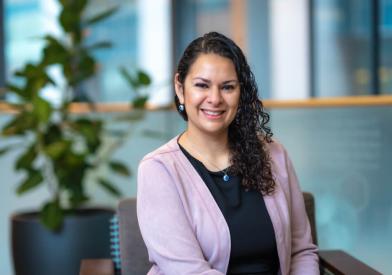What Is Non-Small Cell Lung Cancer?
Non-small cell lung cancer is the most common type of lung cancer. It begins in the lungs and may spread to other parts of the body.
Non-small cell lung cancer begins when epithelial cells, which form the inside lining of the lungs, grow rapidly and uncontrollably. Often, these cells develop into a mass called a tumor. A malignant or cancerous tumor can stay in one place or spread to other parts of the body. The bronchi are sometimes also involved in lung cancer.
Non-small cell lung cancer is more easily treatable when caught early and still localized in the lung, and has not spread (metastasized) to other parts of the body. Treatments may include a combination of surgery, radiation, chemotherapy, and/or targeted medications.
At Dana-Farber Brigham Cancer Center, our dedicated thoracic team of radiologists, pathologists, medical oncologists, surgeons and radiation oncologists work together to determine:
- Whether you have cancer at all (there are other disorders that can look like cancer but have very different treatments and outcomes);
- What type of cancer you have;
- Whether your cancer can be immediately treated by surgery;
- Whether there are specific drugs to treat the cancer based on its genetic mutation;
- What set of treatments are likely to be most effective for your individual cancer.







